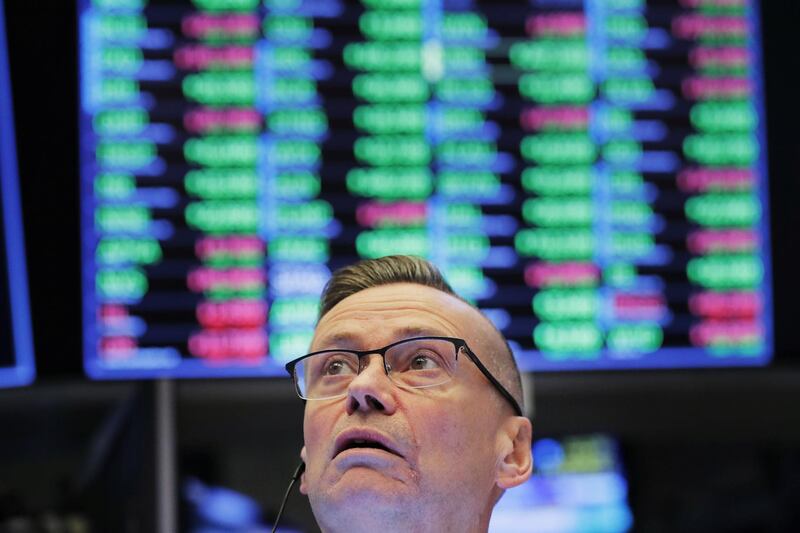Stock market tracker funds have become immensely popular in recent years as a low-cost way of investing passively with huge diversification. Many people now treat such funds as an alternative to traditional savings accounts with their miserly interest rates.
Indeed, tracker or passive index funds have performed brilliantly as the long bull market in global stocks that began in the slump of March 2009 continued up and up. Last year Donald Trump’s tax cuts gave another burst of life to this ageing bull.
But 10 years is a very long bull cycle for stocks. Beware, nothing lasts forever.
That’s the red-letter warning that ought to be attached to stock market tracker funds. They are only as good as the strength of the stock market.
Now according to the classic market valuation indicator that compares gross domestic product to total stock market value — the one most favoured by Warren Buffett — last October US stocks became their most overvalued in history, higher even than just before the Great Crash of 1929.
Last autumn, there was indeed a great fall in stock values with the S&P shedding 19.8 per cent of its value before a December rally that continued until late March this year. Since then the market has weakened.
Quite possibly we have just seen the classic double-top in this bull market, or the start of a short sideward move before the plunge. The yield curve inversion of March 22 was also the classic, and pretty much infallible, indicator of a US recession in three to six months.
The statement from the Federal Reserve chair Jerome Powell the day before effectively stopped interest rate rises for this year, citing a slowdown in China and Europe.
Now passive fund investors may think to themselves: "Oh well, if the market goes down I will just have to wait for it to come back, and when it does the money I have invested will go up with the next swing in the cycle. Shares always go up."
The problem is that this conclusion is mistaken. Stock markets can take long downward swoons and take decades to recover their all-time highs, especially when that high has been as high as the recent upswing.
Ray Dalio, the world’s most successful hedge fund manager, thinks 1937 is one possible historical parallel as to where the US stock market is going; it marked the end of a similar recovery from the Great Crash of 1929.
But what happened in 1937 was a 60 per cent slump in share prices that took a decade to recover.
Are you a tech fan? Then recall the Nasdaq’s bull market peak of 5,132 on March 10 2000, a level not seen again for 17 years.
If you are thinking of investing in tracker funds, or have done so in the past few years, then you might want to become more active in your approach, and actually sell these stock market investments, while you still can, at a high price.
If you want to stay invested in financial markets, why not consider shifting to an ETF that invests in treasury bonds like TLT instead? As interest rates drop, or are expected to fall, then bond prices will go up. The inflation-protected TIPS bonds ETF is another idea.
Precious metals would also do very well in this environment.
In addition, consider diversifying away from the UAE dirham and holding savings accounts in say the euro or Indian rupee; the dollar has also been incredibly high recently — largely due to money flowing into US assets like stocks.
It could devalue by up to 30 per cent in these circumstances, again according to Ray Dalio, and our UAE dirham is linked to the dollar.
But it is an important point to appreciate that ‘dollar cost averaging’, or regular investments, will do absolutely nothing to save your tracker funds from falling in value with the rest of the stock market.
If you have been investing recently then you have committed one of the cardinal sins of investment: paying too much at, or near, the top of the market. To be a successful investor you have to buy low and sell high, and vice versa.
Otherwise you might as well jump off a cliff and expect to fly.
On the other hand, your investments certainly will fly if you do get this right. Bonds are up. Precious metals, and shares in their producers, are priced low in comparison with previous highs.
There are other alternatives too; UAE house prices are at the bottom of a five-year slump. With mortgage rates now heading lower this could be an ideal time to buy a house and stop paying rent.
Peter Cooper has been writing about finance in the Gulf for two decades







